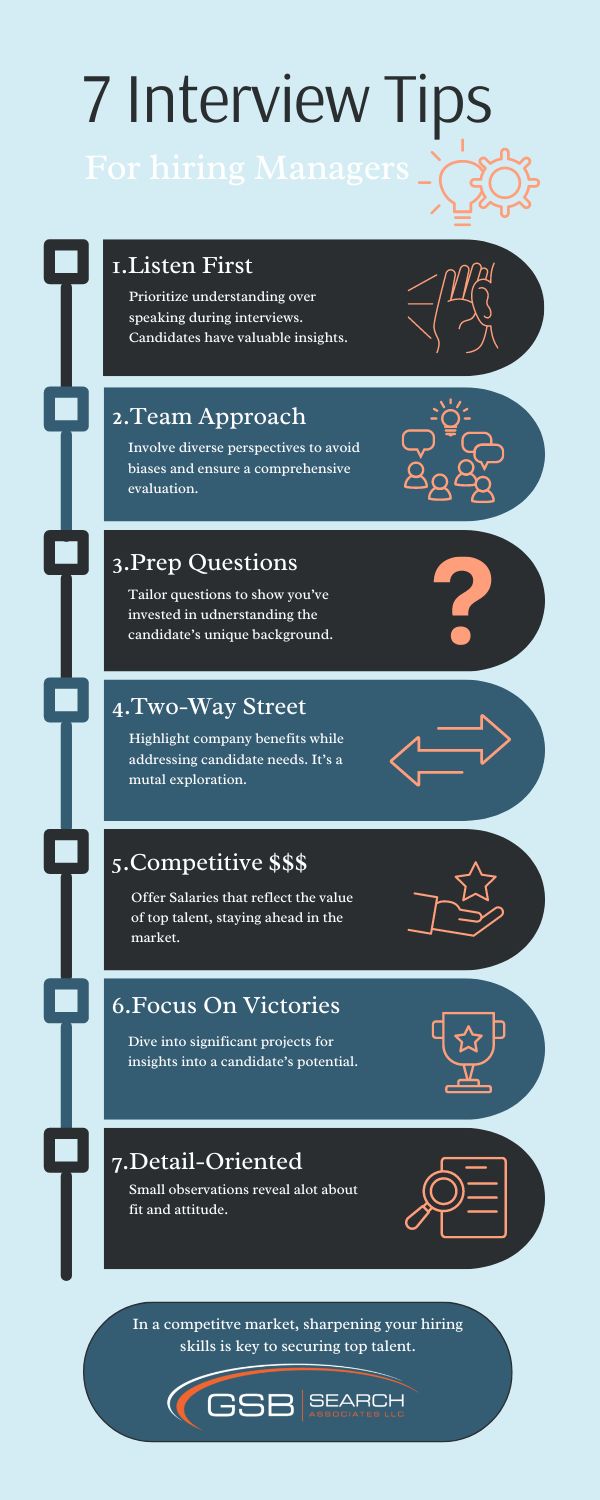1. Seek first to understand, then to be understood
This principle, drawn from Dr. Stephen Covey’s book “The Seven Habits of Highly Effective People,” emphasizes the importance of active listening. Many hiring managers, in their eagerness to describe the position, overlook the necessity of being good listeners. During interviews, they often talk excessively about themselves or the job opportunity, leaving little room for the candidates to express themselves. Allowing candidates to speak more provides valuable insights into their abilities and fit for the role.
2. Identify who must interview the candidate beforehand
Adopting a team approach to hiring can mitigate biases often present in individual hiring managers, known as “hiring in their image.” Involving various team members helps in adhering to predetermined criteria and provides multiple perspectives on the candidate. Different interviewing styles can uncover aspects of the candidate that one person alone might overlook.
3. Prepare questions in advance; avoid improvisation
Neglecting interview preparation can be perceived by candidates as impersonal and indifferent. Instead, crafting questions tailored to the candidate’s background demonstrates genuine interest and facilitates a more insightful evaluation of their suitability for the role.
4. Allow the candidate to interview you as well
Recognize that hiring is a mutual decision-making process. In competitive talent markets, showcasing your organization’s benefits and values is essential. Understanding the candidate’s priorities enables highlighting how your company can fulfill their needs.
5. Ensure competitive compensation
Competitive wages are imperative for attracting and retaining top talent. Consulting with Human Resources or industry peers to determine market rates ensures that top performers are appropriately compensated.
6. Pose specific questions about significant projects or achievements
Lou Adler’s concept of asking about the most significant accomplishment in a candidate’s career can yield valuable insights. This approach allows for deeper exploration through follow-up behavioral-based questions, enabling candidates to articulate how their past successes position them for future endeavors.
7. Pay attention to details
Small observations, such as a candidate’s attire or punctuality, can offer valuable insights into their fit within the organization and their level of responsibility.
Conclusion:
In today’s competitive hiring landscape, refining interview skills is crucial to attracting and retaining top talent. Sharpening these skills enhances the ability to identify candidates who can contribute the most value to the organization.
I am eager to hear your thoughts on the following questions: Have you observed a changing environment and increased competition for talent? Has your company adapted its hiring practices to improve the quality of candidates it attracts? Your feedback is invaluable.



